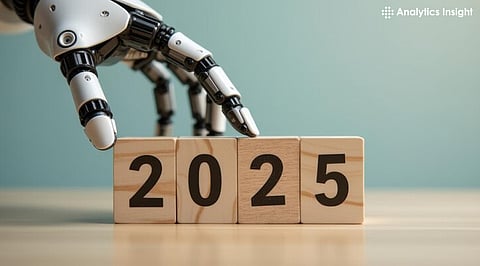

Artificial intelligence (AI) is constantly evolving, offering groundbreaking possibilities that redefine industries and daily life. Experts predict 2025 as a landmark year for AI, with advancements poised to make machines smarter, more efficient, and deeply integrated into our world.
From revolutionizing healthcare to transforming enterprise solutions, here's what leading voices in AI predict for the near future.
AI is no longer a research lab or pilot project; it is becoming the core of enterprise operations. According to Andrew Ng, founder of DeepLearning.AI, generative AI will be the source of productivity by automating repetitive tasks and finding creative solutions across industries. Be it supply chain optimization or customer engagement, AI is going to bring unprecedented efficiency.
Co-director of Stanford's Human-Centered AI Institute Fei-Fei Li is clear on the new wave: it's toward smaller, domain-specific AI models that are tailor-made to suit specific business needs in real-time applications, such as logistics and edge computing.
In this manner, the development of AI will always be efficient, practical, and user-centric.
According to Eric Topol, a digital medicine leader, AI will change the face of healthcare through better diagnostics, personalized treatment, and enhanced operational efficiency.
DeepMind's AlphaFold is one of the tools that transformed protein structure predictions and will bring breakthroughs in drug discovery and early disease detection. The wearable AI device will further enable individuals to monitor and manage their health in real-time.
According to Yann LeCun, chief AI scientist at Meta, agentic AI systems-the systems that can set and achieve their own goals transform the way businesses operate.
The most challenging IT management to marketing strategy optimization will be undertaken by intelligent agents who, in a sense, will be part of the workforce.
With the ability to process text, images, and audio together, multimodal AI is opening new doors for industries as diverse as media, entertainment, and education.
As Sam Altman, the CEO of OpenAI, emphasizes, the systems, including GPT-4 and future ones, will have even more immersive, context-aware experiences in communication and creative output.
Sebastian Thrun, Udacity founder, believes that AI will change education, creating individualized experiences. AI-powered VR/AR will create environments that are truly immersive and personalized to one's learning style. In marketing, it will craft hyper-targeted campaigns that, in the long run, induce a stronger bond between brands and consumers.
As AI capabilities grow, ethical issues become prominent. Kate Crawford of Atlas of AI states that the "regulations for AI need to be designed to foster transparency and fairness." Ethical AI will, therefore, enable companies to get the consumer trust and gain superiority in competitive markets.
Stating that AI has the dual role of being both a guardian and a potential threat in the field of cybersecurity, Stuart Russell, co-author of Artificial Intelligence: A Modern Approach, highlights how AI systems are going to play a critical role in real-time detection and mitigation of cyber threats.
However, this risk of AI-driven cyber attacks requires alertness and robust countermeasures.
Yoshua Bengio is one of the pioneers in deep learning. He thinks AI agents will become an integral part of daily life. These tools will take over the tasks such as booking appointments, tracking expenses, and making communication easier.
Natural language processing, along with man-like interaction, will bring the AI from its category of just being a tool to that of a collaborator.
While the potential is immense, experts caution against overlooking challenges. Geoffrey Hinton, often called the "Godfather of AI," points out that issues like energy consumption, biased datasets, and unequal access to technology need urgent attention.
Innovations like quantum computing may address some of these concerns but require careful implementation to avoid new pitfalls.
It is not just the smarter technology in 2025 but a very deep influence in society and in the evolution of human beings and machines together. This promises a future that will solve intricate problems with AI, as well as a betterment of life, work, and relationship for all humankind.
